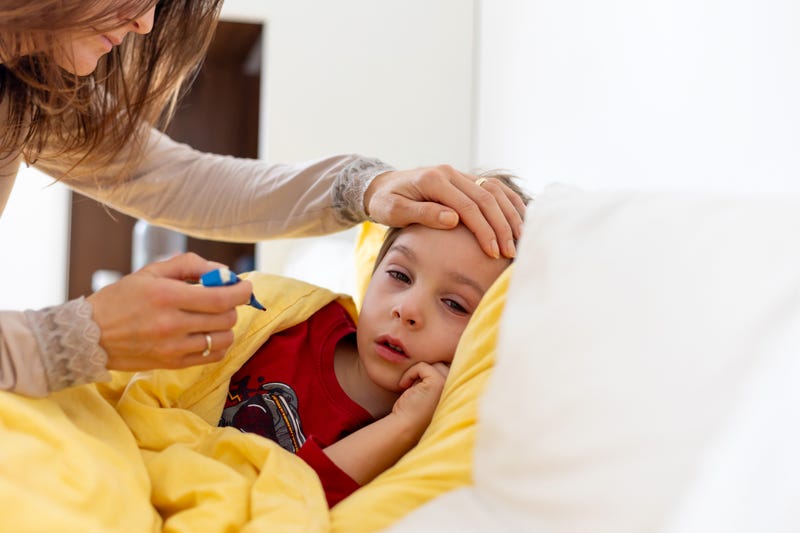
Some experts are calling Louisiana’s RSV numbers “off the charts” and it has plenty of pediatricians and parents concerned. Most of the pediatric clinics contacted for this story were swamped. Many spoke of being short-staffed with crowded waiting rooms, leaving few with time for an interview. While flu numbers have also been a huge concern during the holiday season, RSV cases have been overtaking pedatricians’ waiting rooms across the region. Flu is the more known of the two ailments, and many people still aren’t quite sure what RSV actually is. So … what is it? According to Dr. Mark Kline, Physician in Chief and Chief Medical Officer at Children’s Hospital of New Orleans, it differs from your typical seasonal flu in several ways. “It’s a winter time respiratory virus that produces cough, wheezing, and fever. The most severe cases tend to occur in very young children under one year of age … or the elderly. So, it really affects both extremes of the age range,“ Kline points out.
As of December, Louisiana’s respiratory virus numbers show the highest amount of cases in the country. This has plenty of parents concerned about how to protect their little ones against the spread of RSV. While the virus can affect people of all ages, it’s of particular concern for parents of the very young. Children under the age of one make up the majority of RSV emergency room visits. Children aged 2-4 followed closely after in the numbers.
According to Dr. Kline, there are several symptoms to keep an eye out for. “In those under one year of age, you’ll see congestion, cough, and fever. Wheezing is one of the classic symptoms of RSV,“ Dr. Kline notes. “Kids can develop quite a bit of respiratory distress from this, and that’s what tends to take them into the emergency room or the hospital,” he goes on to say. While it can be a danger to those with immune issues and other health disorders, Dr. Kline points out that symptoms tend to become less severe as children age. “Older kids who are 3 to 10 years old may just have severe cold-like symptoms. Adults (other than the elderly) tend to have relatively mild illness with RSV. It’s really the little bitty ones we worry about the most,” Dr. Kline goes on to say. He does note that certain conditions can increase the likelihood of RSV-related complications that can lead to hospitalization. “Specifically if babies are born prematurely or have congenital heart or lung disease, those babies are particularly vulnerable to severe complications from RSV,” adds Kline.
While RSV may not be as well-known as the flu and other viruses that can go around, there is an RSV immunization available. Dr. Kline emphasizes. “There are actually two options available these days. One is a classic vaccine that is available for people over 75 years of age and it is highly recommended that people over the age of 75 get that RSV vaccine to prevent severe disease,” Kline points out. “People over age 60 who have underlying cardiac, lung disease or some sort of immune suppression or disease should also be considered for vaccination,” he adds. The third group who should consider vaccination might be surprising to many. Dr. Kline says the last group who should consider vaccination are pregnant women. “The reason there is that the antibody that is produced as a consequence of vaccination in a pregnant woman can pass across the placenta to the fetus and protect the baby for the first six months or so of life. So, pregnant women should ask their OB doctors about vaccination against RSV,” notes Dr. Kline. The other option beyond the classic needle jab vaccination available to the public is not really a classic vaccination, but it’s an antibody that offers protection to infants,” Kline adds.
While people may typically attribute the winter months to the spread of RSV, respiratory virus season can extend until May. While Dr. Kline points out that many in the region are suffering from a bit of vaccine fatigue, it’s important to protect the most vulnerable amongst the population from what could be highly preventable complications.
